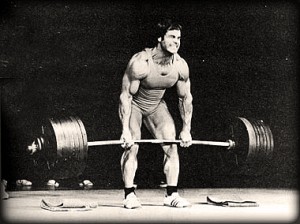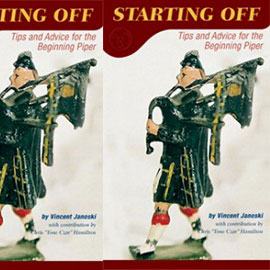Be a Stronger Bagpiper
 A great article “Everything You Know About Fitness Is a Lie” by Daniel Duane in Men’s Journal suggests that perhaps many things we have been conditioned to believe about working out are not entirely accurate. The article delves into aspects of the “fitness industry” and describes all the machines, gyms, trainers, and methods that really do nothing but feed the cash hungry beast of the fitness business. His discovery is that true strength comes from a simple routine of free weights and exercises with fundamental goals—a program that hasn’t changed much in seventy years.
A great article “Everything You Know About Fitness Is a Lie” by Daniel Duane in Men’s Journal suggests that perhaps many things we have been conditioned to believe about working out are not entirely accurate. The article delves into aspects of the “fitness industry” and describes all the machines, gyms, trainers, and methods that really do nothing but feed the cash hungry beast of the fitness business. His discovery is that true strength comes from a simple routine of free weights and exercises with fundamental goals—a program that hasn’t changed much in seventy years.
This got me thinking about bagpipes. Modern bagpiping is showing signs of this same thing I think. New reeds, new bags, new chanters, workshops that promise to make you a better player, tests that promote “progressive learning,” all take on the characteristics of an industry looking to feed itself rather than help people be better and stronger.
Duane’s article makes the point that it is more the context of the training that produces the results. If you want to be stronger for rock climbing or whatever, then you need to simplify your routine to focus on that goal through what he calls the “Fundamental Four.” These are four basic concepts and exercises that can be tackled together or separately with simple exercises to fit any fitness goal.
Good advice for pipers. We can create a bagpiper’s Fundamental Four. Here it is: Technique; Blowing; Instrument; Musicality. Instead of hammering away at the music and the instrument in the hopes of reaching your vague goal of “getting better,” then you need to simplify your routine and focus on the basics of reaching that goal as it applies to any or each of the four areas. All the basic things your instructors have hinted at or that you’ve overlooked as producing solid results: good technique; good blowing; good instrument sound. These things are achieved simply, without gadgets and gizmos, without constant seminars and workshops. That is not to say that these things are all bad. But if you’re focussing simply then the true quality of what you’re after will become apparent and draw you to those things that match it.
Think about your weak areas and be honest about your desire to improve them. Does your crunluath suck? Is your goal to play a full piobaireachd and finish strong? Then the work you need to do becomes clear: technique and stamina. Keep your practice exercises simple and focussed on these things and results will come. The actual routine you use can be a variety of things, but as Duane points out:
“The only other thing you really need to understand is how our bodies respond to training. First: The human body adapts to stress. Throw us in ice-cold water every day and we’ll sprout subcutaneous fat for insulation; expose us to the desert sun and our skin will darken. What this means for getting in shape is that each week, you have to stress your body a little more than last time — lift a little heavier, run a little harder. Muscles weaken with exhaustion after a workout, but then they recover and typically, a few days later, go into what’s known as “supercompensation,†a fancy word that just means bouncing back a little stronger than before. Soon afterward the muscle fades back to normal again. Work a muscle too soon after the last time you worked it, before the muscle completely recovers, and it’ll get even weaker than before. If you work a muscle too late, after that supercompensation effect fades, you’ll just keep returning to your baseline.”
This is key. Your simplified training routine should be consistent and push past the comfort zone a little bit each time. Stamina comes with pushing just a little further each time and technical improvements come with the same approach. Everything you know about bagpiping may not actually be a lie, but it’s important not to get caught up in the things that distract you from the simpler methods that are the key to solid improvement and progress.
 Pipehacker
Pipehacker








